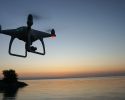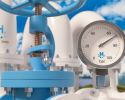Norwegian officers skeptical of autonomous ships
The more professional commitment Norwegian officers feel, the more they doubt that autonomous ships will make maritime transport safer. This trend is revealed by a study recently published in the WMU Journal of Maritime Affairs.
Even though they trust the automated systems already in place, there is strong skepticism, almost distrust, among Norwegian officers regarding the ongoing automation's ability to enhance maritime safety. Asbjørn Lein Aalberg, the researcher behind the study "Pride and Mistrust? The association between maritime bridge crew officers’ professional commitment and trust in autonomy," is not surprised by this. Maritime tradition is built on long-standing pride, deeply rooted in sailors, with many considering their work more of a lifestyle. His hypothesis was that professional commitment would be negatively correlated with trust in autonomy among the 8,000 officers who participated in the study.
Understanding why officers feel this way is crucial, according to Aalberg. Their commitment and willingness are essential to ensuring that new technologies and systems developed not only become useful but also safe. Officers and navigators must be able to relate to these systems and not merely become obedient to orders. They seem to have a good relationship with today's systems – the study indicates they trust the existing autopilots onboard because they feel they are in control of them.
However, they are skeptical about more autonomy, especially young officers with strong professional commitment. Aalberg believes this is because they feel they have the most to lose by embracing changes that could threaten their professional roles.
The study's findings confirm that commanders are willing to take advice and decision support from artificial intelligence (as previous Lighthouse studies have shown), but the question remains: how can they become more comfortable with greater autonomy? Aalberg recommends that researchers and companies investigate this matter further and tailor their solutions accordingly. Investing in technology that supports humans rather than replacing them aligns with Industry 5.0 – the latest trend in the industrial revolution, merging machine speed and efficiency with human ingenuity and talent. Therefore, involving professionals early in the development of new ideas and testing them is wise to ensure they are both reliable and trusted by those who will use them.
From a safety perspective, the study's results could be worrisome. Assuming that the most engaged sailors are also the most knowledgeable, it is alarming that they question safety. This could be due to the inadequate reliability of the technology, which should be improved before implementation. According to Aalberg, researching passengers' trust and perceived safety onboard autonomous ships is also relevant.
-
 We are not approaching the transport policy goals
We are not approaching the transport policy goals -
 Time to pave the way for ammonia
Time to pave the way for ammonia -
 Drones and AI can save lives at sea
Drones and AI can save lives at sea -
 Watch the seminar Nordic Roadmap
Watch the seminar Nordic Roadmap -
 Research money yields manifold returns
Research money yields manifold returns -
 Bike counting at docks could save fuel
Bike counting at docks could save fuel -
 Hydrogen to be cooled with seawater on Gotland ferries
Hydrogen to be cooled with seawater on Gotland ferries -
 New rules needed for handling electric cars on board ships
New rules needed for handling electric cars on board ships -
 ChatGPT lacks spatial sense
ChatGPT lacks spatial sense -
 77 million SEK to the Sustainable Shipping Program
77 million SEK to the Sustainable Shipping Program

